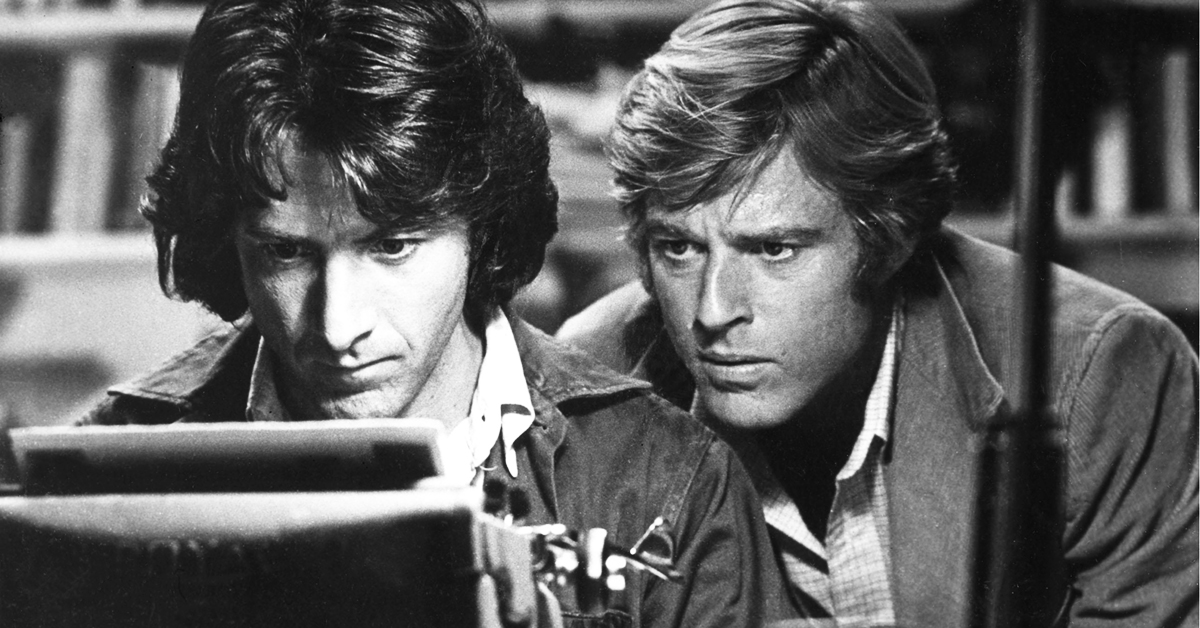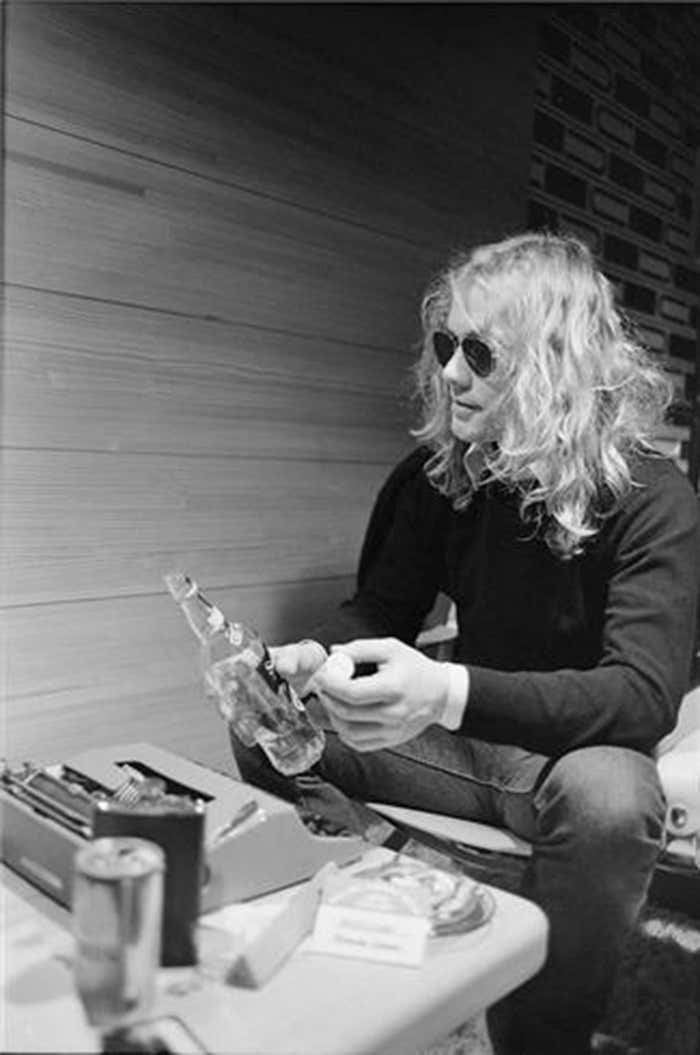https://www.imdb.com/title/tt0074119/

9:31 Jared Bernstein fails to answer this question coherently. "I dont get it" !!
Warren Zevon at a JP-1 style typewriter in 1977 photo by Joel Bernstein

https://www.dianejosefowicz.com/
Diane Josefowitcz (aka Diane Greco) previously worked with Mark Bernstein
Mark Bernstein suggested this with respect to note taking and commonplace book traditions in a Tools For Thought Rocks talk: https://lu.ma/2u5f7ky0
Mallon, Thomas. A Book of One’s Own: People and Their Diaries. New York: Ticknor & Fields, 1984.
I attended this live this morning from 9:20 - 10:45 AM
reply to Ryan Randall and Matt Stine at https://hcommons.social/@ryanrandall/109677171177320098
@mstine@mastodon.sdf.org @ryanrandall It won't go as far back as we may like, but I'm hoping Mark Bernstein's upcoming talk will help to remedy some of the lost knowledge: https://lu.ma/2u5f7ky0
In part I blame Vannevar Bush for erasing so much history in As We May Think (1945).
Mark: Yeah. And I actually think the Agile revolution in software development is software development catching up to the fact that it’s a writer-ly art. Writers don’t know where they’re going or how they’re going to express it when they start out. Neither, it turns out, does software developers. They can pretend by writing it the first time in a spec language and then coding it and then, checking the specification, then finding out that they’ve written the wrong thing and writing a new specification. That was when I was getting started, the right way to write software.
Agile software development is akin to the design of the writing process.
https://theinformed.life/2022/10/23/episode-99-mark-bernstein/
Listened to this yesterday (2022-11-17).
When I first read the Zettelkasten paper, in the late 90s, the interesting point was the physical filing system.
Mark Bernstein, the creator of Tinderbox, indicates that he read Niklas Luhmann's paper "Communicating with Slip Boxes: An Empirical Account" (1992) in the late 1990s.
Tinderbox
Tinderbox really is a fantastic name for a note taking / personal knowledge management system. Just the idea makes me want to paint flames on the sides of my physical card index. https://www.eastgate.com/Tinderbox/
https://web.archive.org/web/20080412071219/http://eastgate.com/catalog/Briefcase.html
Eastgate systems used to make a "3x5 Card Briefcase" to capture short notes on the go which could later "be scanned or transcribed to Tinderbox."
Tinderbox was one of the first digital tools to be used in a way very similar to zettelkasten of old, particularly by academics, who are a large portion of their power user base.
https://victorianweb.org/index.html
Found via Mark Bernstein: https://www.markbernstein.org/NeoVictorian.html
Baby, I'm cookin' with gas
A lyric from "I Can Cook Too" written by Leonard Bernstein which appears in the 1944 Broadway musical "On the Town" sung by Nancy Walker and later in the 1949 film.
https://en.wikipedia.org/wiki/On_the_Town_(musical)
I heard it last night at the end of the final episode of Julia S1, E8 Chocolate Souffle (May 5, 2022).
Other popular terms for such a system include Zettelkasten (meaning “slipbox” in German, coined by influential sociologist Niklas Luhmann), Memex (aword invented by American inventor Vannevar Bush), and digital garden(named by popular online creator Anne-Laure Le Cunff)
Zettelkasten existed prior to Niklas Luhmann, who neither invented them nor coined their name.
The earliest concept of a digital garden stems from Mark Bernstein's essay Hypertext Gardens: Delightful Vistas in 1998.
Anne-Laure Le Cunff's first mention of "digital garden" was on April 21, 2020
<script async src="https://platform.twitter.com/widgets.js" charset="utf-8"></script>Progress on my digital garden / evergreen notebook inspired by @andy_matuschak🌱<br><br>Super grateful for @alyssaxuu who's been literally handholding me through the whole thing — thank you! pic.twitter.com/ErzvEsdAUj
— Anne-Laure Le Cunff (@anthilemoon) April 22, 2020
Which occurred after Maggie Appleton's mention on 2020-04-15 https://twitter.com/Mappletons/status/1250532315459194880
<script async src="https://platform.twitter.com/widgets.js" charset="utf-8"></script>Nerding hard on digital gardens, personal wikis, and experimental knowledge systems with @_jonesian today.<br><br>We have an epic collection going, check these out...<br><br>1. @tomcritchlow's Wikifolders: https://t.co/QnXw0vzbMG pic.twitter.com/9ri6g9hD93
— Maggie Appleton 🧭 (@Mappletons) April 15, 2020
And several days after Justin Tadlock on 2020-04-17 https://wptavern.com/on- digital-gardens-blogs-personal-spaces-and-the-future
Before this there was Joel Hooks by at least 2020-02-04 https://web.archive.org/web/20200204180025/https://joelhooks.com/digital-garden, though he had been thinking about it in late 2019: https://github.com/joelhooks/joelhooks-com/blob/36c21b34f02ade14d4e67915ff412462030282cd/content/blog/2019-12-08--on-writing-more~~qG38AKqxq/index.mdx
He was predated by Tom Critchlow on 2018-10-18 https://tomcritchlow.com/blogchains/digital-gardens/ who quotes Mike Caulfield's article from 2015-10-17 as an influence https://hapgood.us/2015/10/17/the-garden-and-the-stream-a-technopastoral/amp/
Archive.org has versions going back into the early 2000's: https://web.archive.org/web/*/%22digital%20garden%22
WellAlwaysHaveParis il y a 7 ans • Testament to the power of the Internet...Leonard Bernstein has been dead for 23 years, and yet his knowledge, insight and wisdom perpetually echo forward for future generations. This video was probably lost in an attic somewhere before somebody decided to drop it on YouTube. It warms my heart that 59,000+ people have seen it.
Recordings from the whole lecture series by “born teacher” Leonard Bernstein has been “making the rounds”, thanks in part to YouTubers like Adam Neely who has been linking to those videos in descriptions of some of his episodes.
Part of the reason the series interests me for its #PedagogicalHeritage is that it extend Bernstein’s role, who’s been mostly known as a composer and conductor. These really are lectures, delivered on campus. At the beginning of the first lecture, Bernstein explicitly described his relationship to Harvard and his being “petrified” at lecturing there. His outside status is important. In music, it’s not uncommon for lectures to be given by renowned musical experts without the academic #credentials which usually serve to “qualify” a prof. According to his bio (archive), LB was a visiting prof at Brandeis in the 1950s. When he delivered those lectures on campus, he was “Charles Eliot Norton Professor of Poetry at Harvard”. The lectures were a significant part of the deal. There’s a direct continuity between the lecturer’s experience and the delivery of “teaching material”. In another context, the research behind those lectures might not have qualified a prof for tenure.
There’s quite a bit about prestige to unpack, there. And more than a little about “The Canon”. If I use excerpts from this series in my teaching, I’ll likely start from that: who was Bernstein? Why does it matter that we hear his voice instead of somebody else’s? What learning affordances from these recordings, including the musical examples performed on the piano? The context would likely be my beloved ethnomusicology course. Otherwise, some kind of course about “broad approaches to music theorization”.
What strikes me in this comment (and in the “well, actually…” reply) is the very notion that the Internet gives us access to something valuable. Yet this access might be taken away at a moment’s notice (the ways of the DMCA are impenetrable). Yes, DVDs exist and the content might be retrieved. It’s technically possible to make backups of those videos. Yet the 5Rs of Open Content aren’t obvious, here.
Although, Neely did remix some of the content.
Joseph Bernstein
This man is never going to work for the New Yorker or the New York Times